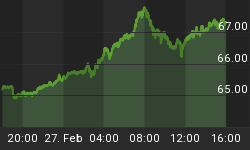“Senator, we run ads.”
The brevity of Facebook CEO Mark Zuckerberg’s rebuttal to Utah senator Orrin Hatch in testimony last week shouldn’t be confused with simplicity.
It is anything but.
This ‘ad agency’ has over 2 billion monthly active users worldwide, over 25,000 employees and offices in 13 U.S. cities, for starters. This is no longer a company that ‘runs ads’. It’s a company that grants “endless opportunities to collect increasing amounts of information on their customers.”
The data collection potential is limitless. And the abuse, as seen by the Cambridge Analytica scandal, is likewise limitless.
Now, we’re witnessing the seventh-largest equity short in U.S. history. Facebook has been shorted over $5 billion, Reuters quoted S3 Partners as saying.
Facebook (NASDAQ:FB) shares lost almost 10 percent in Q1 2018, making it the worst FANG performer thanks to Cambridge Analytica’s abuse of the private data of 50 million users for presidential campaign purposes. That opened up a huge Pandora’s Box of privacy issues and sparked off a #deletefacebook trend that, dire as it sounds, hasn’t really hit Facebook too hard yet.
Now, it’s trading on sentiment, but not everyone’s sentiment is negative, including giant BlackRock, Inc, which has over $6 trillion under management.
According to an exclusive Reuters report Monday, BlackRock raised its bet on Facebook in March, at the height of the privacy scandal and while shorting it was the trend.
And it didn’t just raise its stake, it made it one of the fund’s top 10 equity holdings, according to anonymous sources.
For some, Facebook stock is the cheapest it’s ever been—or almost—and despite the scandal, it could deliver hard in the next year.
In other words, it’s a buying opportunity that no one would have had without the scandal. Related: Solving The Social Media Data Crisis
And they may be right because while there’s a lot of anger floating around, advertisers haven’t pulled their money from the platform permanently because it’s too beneficial to them. And they’re sticking around because usage hasn’t even taken a hit. They’re playing it cautious to see who, if anyone, withdraws first. Users would have to leave in droves before advertisers ceased to find the service worthwhile.
What amounts to an endorsement from BlackRock helps, too, of course. But earnings are also coming up. If earnings manage to distract from the scandal a bit, we could see negative sentiment ease up.
Earnings are scheduled for April 25, after the closing bell.
But it will still take more than BlackRock to stop this boat from taking on water. What investors will want to hear in the next earnings report is a clear path to valuation justification.
With a market cap of $479 billion and $40 billion of revenue generated last year, investors don’t have a lot of patience, and that patience is tried even more so with the privacy scandal. This is a growth question, and while the last earnings report was impressive, the next one needs to convince investors that Facebook hasn’t already reached peak growth.
By Michael Scott for Safehaven.com
More Top Reads From Safehaven.com:
















